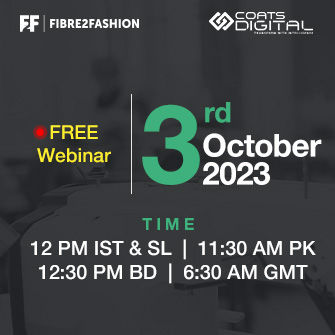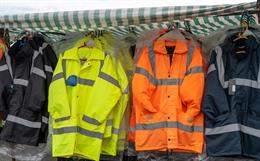C O N T E N T S
Context i iii
Executive Summary iv vii
Section-1 : 1.1-1.28
Effect of Occupational Heat & Control Measures 1.1
Heat Stroke 1.2
Heat Stress and Heatstrain (Heat Index) 1.3
Acclimatization 1.4
Minimizing the riskof heat illness 1.5
Heat illness factorsassociated with job 1.6
Heat illness factorsassociated with environment and season 1.6
Heat illness factorsassociated with workers 1.7
Elimination controls 1.7
Modifying the workenvironment 1.7
Administrativecontrols 1.8
Personal protectiveequipment (PPE) 1.8
Categories of Protective Clothing 1.9
Flame Resistant WorkWear 1.10
FirefightersClothing 1.11
Cut Resistant WorkWear 1.11
Chemical andHazardous Material (Hazmat) Clothing 1.12
Combat uniforms 1.12
High VisibilityApparel 1.13
Fluorescent Material 1.13
Reflective Material 1.13
Light Emitting diodes(LEDs) 1.14
Clean Room Clothing 1.14
Medical ProtectiveClothing 1.14
Multi-functionalProtective Wear 1.15
Iron and Steel Industry 1.15
Oil & Gas Industry 1.23
Chemical Industry 1.28
Contd...
Section-2: 2.1-2.47
International Committees for PPE 2.1
International Standardization 2.1
European Standard Organization 2.2
American Standard Organization 2.4
Bureau of Indian Standards 2.4
Approach to Standardize Personal Protective Clothing 2.7
ISO Standards for Technical Regulations 2.8
European Approach 2.19
American Approach 2.41
Section-3 : 3.1-3.42
Legislative Approach of Developed Countries 3.1
United state of America 3.2
European Union 3.13
United Kingdom 3.17
South Africa 3.26
Japan 3.38
China 3.40
Canada 3.41
Australia 3.42
Brazil
Section-4 : 4.1-4.44
Indian Scenario in relation to Workers Safety 4.1
Industrial Accidents 4.1
National Safety Council 4.6
Legal Provision on safety of workers 4.7
Article-24 : Prohibition of employment of children in factories, etc
Article-39 : Certain principles of policy to be followed by the state
Article-42 : Provision for just and humane conditions of work and maternity relief
Article-43 : Living wage, etc; for workers
National Policy of Safety of workers 4.9
Goals
Objectives
Action Programme
Boiler Act, 1923 4.20
Building and other construction Workers (Regulation of
Employment and Conditions of Services) Act, 1996 4.21
Contract Labour (Regulation and Abolition) Act 1970 4.21
Dangerous Machine (Regulation) Act, 1983 4.22
Contd...
Dock worker (Safety, Health and Welfare) Act, 1986 4.22
Factories Act, 1948 4.23
Industrial Employment (Standing Order) Act, 1946 4.24
Iron Ore Mines, Maganese Ore Mines and Chrome Ore Mines
Labour Welfare Cess Act, 1976 4.25
Limestone and Dolomite Mines Labour welfare Fund Act, 1972 4.26
Mine Act, 1952 4.27
Plantation Labour Act, 1951 4.27
Mines and Mineral (Development & Regulation) Act, 1957 4.28
Fatal Accident Act, 1855 4.28
Manufacture, Storage and Impose of Hazardous Chemicals
Rules, 1989 4.30
Biomedical waste (Management & Handling) Rules, 1998 4.30
Chemical accidents (Emergency Planning Preparedness and
Response) Rules, 1996 4.31
Technical Regulation 4.32
ISO 11611 4.35
ISO 11612 4.38
ISO 14116 4.42
BS EN 61482-1-2 4.44
Section-5 : 5.1-5.2
Action Plan
Appendix


 News
News Articles
Articles Interviews
Interviews Events
Events Advertise with us
Advertise with us About Us
About Us Contact Us
Contact Us Privacy Policy
Privacy Policy Terms & Conditions
Terms & Conditions Cookie Policy
Cookie Policy









